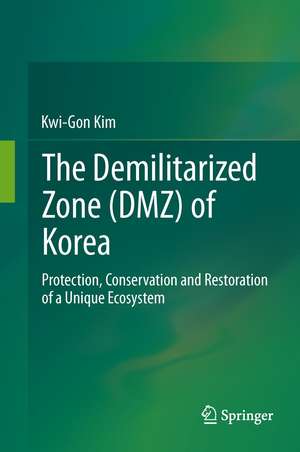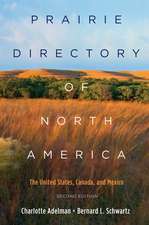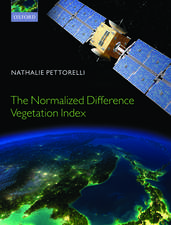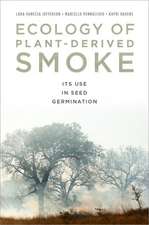The Demilitarized Zone (DMZ) of Korea: Protection, Conservation and Restoration of a Unique Ecosystem
Autor Kwi-Gon Kimen Limba Engleză Hardback – 11 sep 2013
A wealth of data and information has been produced over time, documenting significant aspects of the DMZ and its implications for human and ecological security, both in Korea and worldwide. However, there is no single book in English that brings together the findings on the mechanism of evolution, the ecology and biodiversity of the DMZ.
"The DMZ of Korea", by Kwi-Gon Kim, is the first step in this direction. It seeks to link scientific information and policy making for the future DMZ ecosystem management, taking into account the fact that the area has become, over the years, a natural treasure as a habitat for rare birds and other wildlife and a fertile environment for a thriving plant community. It also provides a framework for ensuring the long-term sustainability of the DMZ.
The book holistically describes the current environmental status of the DMZ, and identifies bioregions, resources, habitats, and species.
By outlining the current scientific data and information needed to classify the different wetland types, assess the biological integrity, understand the threat factors, and to suggest conservation and management strategies, the book provides a "one stop shop" scientific and policy source of information, which will undoubtedly be of great interest to students, researchers, practitioners, and policy decision-makers, in the areas of planning, natural resource management, public management, ecology, landscape architecture, geography, and the life sciences.
Prof.Dr.Kwi-Gon Kim obtained his Ph.D. at UCL, University of London, UK. He is a professor emeritus at Seoul National University and the Co-President of the Korea DMZ Council in Seoul, Korea.
| Toate formatele și edițiile | Preț | Express |
|---|---|---|
| Paperback (1) | 959.04 lei 6-8 săpt. | |
| Springer Berlin, Heidelberg – 23 aug 2016 | 959.04 lei 6-8 săpt. | |
| Hardback (1) | 963.91 lei 6-8 săpt. | |
| Springer Berlin, Heidelberg – 11 sep 2013 | 963.91 lei 6-8 săpt. |
Preț: 963.91 lei
Preț vechi: 1175.51 lei
-18% Nou
Puncte Express: 1446
Preț estimativ în valută:
184.44€ • 200.98$ • 155.42£
184.44€ • 200.98$ • 155.42£
Carte tipărită la comandă
Livrare economică 23 aprilie-07 mai
Preluare comenzi: 021 569.72.76
Specificații
ISBN-13: 9783642384622
ISBN-10: 3642384625
Pagini: 450
Ilustrații: XIX, 583 p. 846 illus., 774 illus. in color.
Dimensiuni: 155 x 235 x 40 mm
Greutate: 0.98 kg
Ediția:2013
Editura: Springer Berlin, Heidelberg
Colecția Springer
Locul publicării:Berlin, Heidelberg, Germany
ISBN-10: 3642384625
Pagini: 450
Ilustrații: XIX, 583 p. 846 illus., 774 illus. in color.
Dimensiuni: 155 x 235 x 40 mm
Greutate: 0.98 kg
Ediția:2013
Editura: Springer Berlin, Heidelberg
Colecția Springer
Locul publicării:Berlin, Heidelberg, Germany
Public țintă
ResearchCuprins
History and Evolution of the DMZ Ecosystem.- Landscape Ecology of the DMZ.- Status and Ecological Resource Value of DMZ.- Habitats in the DMZ Area.- Species in the DMZ Area.- Biodiversity.- Wetland-Type Classification.- Biological Integrity-Assessing the Health of Wetland Ecosystems.- Threatening Factors in the DMZ.- Conservation and Management Strategies.
Textul de pe ultima copertă
Untouched since 1953, the Korean DMZ (Demilitarized Zone) has transformed itself into one of the few ecologically pristine zones and a vital habitat for endangered species. Often cited as a potential "peace park", it could one day be a common ground for reconciliation and harmony.
A wealth of data and information has been produced over time, documenting significant aspects of the DMZ and its implications for human and ecological security, both in Korea and worldwide. However, there is no single book in English that brings together the findings on the mechanism of evolution, the ecology and biodiversity of the DMZ.
"The DMZ of Korea", by Kwi-Gon Kim, is the first step in this direction. It seeks to link scientific information and policy making for the future DMZ ecosystem management, taking into account the fact that the area has become, over the years, a natural treasure as a habitat for rare birds and other wildlife and a fertile environment for a thriving plant community. It also provides a framework for ensuring the long-term sustainability of the DMZ.
The book holistically describes the current environmental status of the DMZ, and identifies bioregions, resources, habitats, and species.
By outlining the current scientific data and information needed to classify the different wetland types, assess the biological integrity, understand the threat factors, and to suggest conservation and management strategies, the book provides a "one stop shop" scientific and policy source of information, which will undoubtedly be of great interest to students, researchers, practitioners, and policy decision-makers, in the areas of planning, natural resource management, public management, ecology, landscape architecture, geography, and the life sciences.
Prof.Dr.Kwi-Gon Kim obtained his Ph.D. at UCL, University of London, UK. He is a professor emeritus at Seoul National University and the Co-President of the Korea DMZ Council in Seoul, Korea.
A wealth of data and information has been produced over time, documenting significant aspects of the DMZ and its implications for human and ecological security, both in Korea and worldwide. However, there is no single book in English that brings together the findings on the mechanism of evolution, the ecology and biodiversity of the DMZ.
"The DMZ of Korea", by Kwi-Gon Kim, is the first step in this direction. It seeks to link scientific information and policy making for the future DMZ ecosystem management, taking into account the fact that the area has become, over the years, a natural treasure as a habitat for rare birds and other wildlife and a fertile environment for a thriving plant community. It also provides a framework for ensuring the long-term sustainability of the DMZ.
The book holistically describes the current environmental status of the DMZ, and identifies bioregions, resources, habitats, and species.
By outlining the current scientific data and information needed to classify the different wetland types, assess the biological integrity, understand the threat factors, and to suggest conservation and management strategies, the book provides a "one stop shop" scientific and policy source of information, which will undoubtedly be of great interest to students, researchers, practitioners, and policy decision-makers, in the areas of planning, natural resource management, public management, ecology, landscape architecture, geography, and the life sciences.
Prof.Dr.Kwi-Gon Kim obtained his Ph.D. at UCL, University of London, UK. He is a professor emeritus at Seoul National University and the Co-President of the Korea DMZ Council in Seoul, Korea.
Caracteristici
Presents the reader a synthesis of the subject Approaches to the ecological problems in the DMZ are presented Serves also as a guideline for the approach and the documentation of protected areas for decision-makers, planners, managers and ecologists Includes supplementary material: sn.pub/extras












